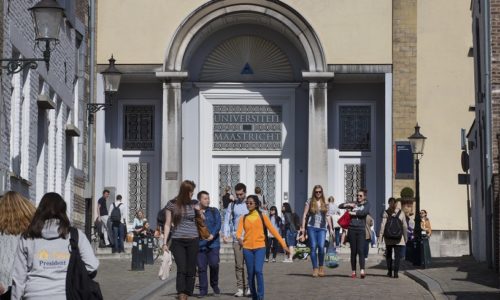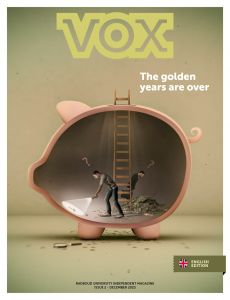Manifesto asks attention for French and German in school
 Foto: Creative commons, Dennis Jarvis
Foto: Creative commons, Dennis Jarvis
Lecturers, teacher trainers, and researchers have drawn a manifesto to demand attention for the school subjects French and German. They believe these subjects should be given more room in the new curriculum. Professor of French Literature Alicia Montoya is one of the faces behind the manifesto.
Lecturers, teacher trainers, and researchers have drawn a manifesto to demand attention for the school subjects French and German. They believe these subjects should be given more room in the new curriculum. Professor of French Literature Alicia Montoya is one of the faces behind the manifesto.
‘We’ll have to convince policy makers and politicians of the need to strengthen the position of neighbouring languages in Dutch education. This is the only way we can ensure that the Netherlands continues to play a meaningful role in Europe and beyond.’ The consortium of lecturers, teacher trainers and researchers promoting German and French as school subjects is certain of one thing: The Netherlands needs people with a good command of German and French. As fewer and fewer school pupils choose French or German as an exam subject, we run the risk of weakening our good contacts with our neighbours.
Watered down
On 31 January, they published a manifesto to draw attention to the perilous position of French and German in Dutch secondary education. According to the manifesto writers, these two school subjects get far too few lesson hours and school students are insufficiently stimulated to select the two neighbouring languages as a subject.
Professor of French Literature and Culture Alicia Montoya is one of the initiators of the manifesto. As director of the Knowledge Centre for France and the Netherlands located on campus, she’s greatly concerned about the dwindling number of pupils who opt for French. She blames this trend on how the school subject has been watered down in past years. ‘All the things that fun about French, such as the differences in culture and world view, were taken out of the curriculum. As a result, it’s become much less attractive for pupils and teachers alike.’
‘There’s more to the world that Anglo-Saxon countries!’
According to Montoya, Dutch politics focuses too much on Anglo-Saxon countries. ‘Even now, after Trump and Brexit! And that while countries like France play a leading role in addressing global issues such as climate change. It’s time the Netherlands understood that there’s more to the world that Anglo-Saxon countries.’
One logical consequence of the pupils’ dwindling interest is that fewer students enrol in French study programmes. Across the Netherlands there are fewer than one hundred first-year students, says Montoya. ‘When you compare this figure to the four thousand secondary school teachers of French, it immediately becomes clear that there’s too little inflow.’ Students also find it difficult to study in France due to their insufficient command of the language.
Promotional campaign
Montoya and her colleagues hope for an intervention from the Minister of Education. In the manifesto, they include eight action points needed to turn the tide. For example, they want all school pupils, also in lower secondary professional education, to be introduced to French and German in their first year. ‘Experience shows that the longer a pupil is familiar with a language, the greater the odds that they’ll include it in their exam profile,’ says Montoya. The consortium also wants a national promotional campaign to stimulate pupils and students to learn French.
Starting in March, teams of secondary school teachers will be working on preparing a new curriculum. The writers hope their manifesto will impact the content of this curriculum.



